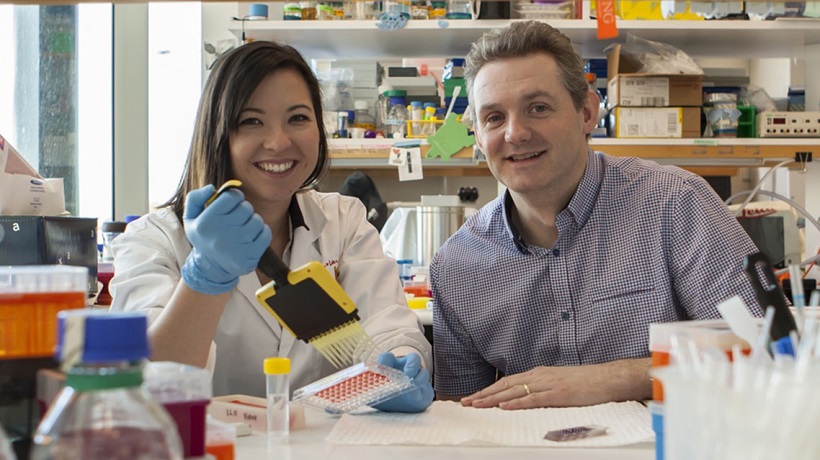
The Ronald Geoffrey Arnott Foundation has generously awarded a $106,713 grant to The Kids’ Cancer Project to help children affected by brain cancer.
Despite advances in treatments for many cancers, overall survival in paediatric brain tumours has stagnated for the last 30 years. In fact, brain tumours are the leading cause of cancer related death and disability in children. The most common of these is medulloblastoma, a tumour arising in the cerebellum, and certain subtypes of medulloblastoma are still associated with very poor survival.
Typically, these tumours are treated with surgery followed by chemotherapy and radiotherapy.
Radiation, while an essential component of treatment, can have very damaging side-effects in children, with fewer than one in 20 survivors are able to lead independent lives due to intellectual disability among other side effects such as deafness.
This funding is specifically being directed toward scientific discovery of new treatment regimens that will enable radiation dosages to be reduced without compromise on a child’s survival which will lead to better overall long-term outcomes.
The research is being conducted out of the Telethon Kids Institute in Perth, jointly led by Professor Nick Gottardo and Dr Raelene Endersby, Co-Heads of the Telethon Kids Institute’s Brain Tumour Research Team.
“Previously, our laboratory discovered that inhibitors of a protein called ATR (ATRi) are effective in medulloblastoma – we’ve seen remarkable results of tumours shrinking completely in avatars,” said Dr Endersby.
“This funding will enable us to continue our work to generate additional supporting data that will enable us to progress these findings to establish a new international clinical trial,” she said.
While it’s a common brain cancer among children, medulloblastoma is considered rare (less than 30 children are diagnosed in Australia each year). Recruiting the requisite sample size to advocate changes in treatment protocols will take years. Consequently, stringent preclinical evidence of efficacy is essential.
Among other roles, Professor Gottardo is Consultant Paediatric Oncologist/Neuro-Oncologist and Head of Department of Paediatric Oncology and Haematology at Perth Children’s hospital. As a result, he is no stranger to ensuring that what happens at the bench can be smoothly transitioned to the bedside.
“We’ll be using sophisticated laboratory models of medulloblastoma and innovative new equipment to undertake additional testing to obtain clinically relevant data to rapidly translate findings from the lab to the most promising new therapies into the clinic,” said Professor Gottardo.
“To meet international clinical trial standards, we’ll need to repeat our experiments to ensure ATRi doesn’t impede the effects of standard chemotherapy which is the next line of attack after radiation,” he said.
Grant funding, Professor Gottardo said, plays a vital role in finding better treatment options for children with cancer.
Adult cancers attract the lion’s share of cancer funding from major bodies. Kids’ cancer researchers are often left to fight over a much smaller piece of the funding pie. That's why they rely on organisations like The Kids’ Cancer Project who in turn are grateful for Trusts and Foundations like the Ronald Geoffrey Arnott Foundation who step up to the plate.
“At least 50 per cent of what we do is funded through philanthropy,” Professor Gottardo said. “To be successful in research you have to be innovative and never complacent.”
“We advocate for our cause; we have a great team and we have strong supporters in The Kids’ Cancer Project and the trusts, foundations and donors who support them,” he said.
As for the future, Dr Endersby says her team is as focused as she is to get the job done.
“I see the deficiencies in the current treatments,” she said. “I see kids who were treated, and I see what they go through over 12 months or more. Then sometimes, after all of that, the tumours return. It’s heart-breaking. So we’re not there yet, but I can recognise the potential.”
The study, “Using smarter new drugs to reduce long term debilitating side effects for aggressive childhood brain” is funded by The Kids’ Cancer Project in collaboration with the Ronald Geoffrey Arnott Foundation and the Pirate Ship Foundation.
